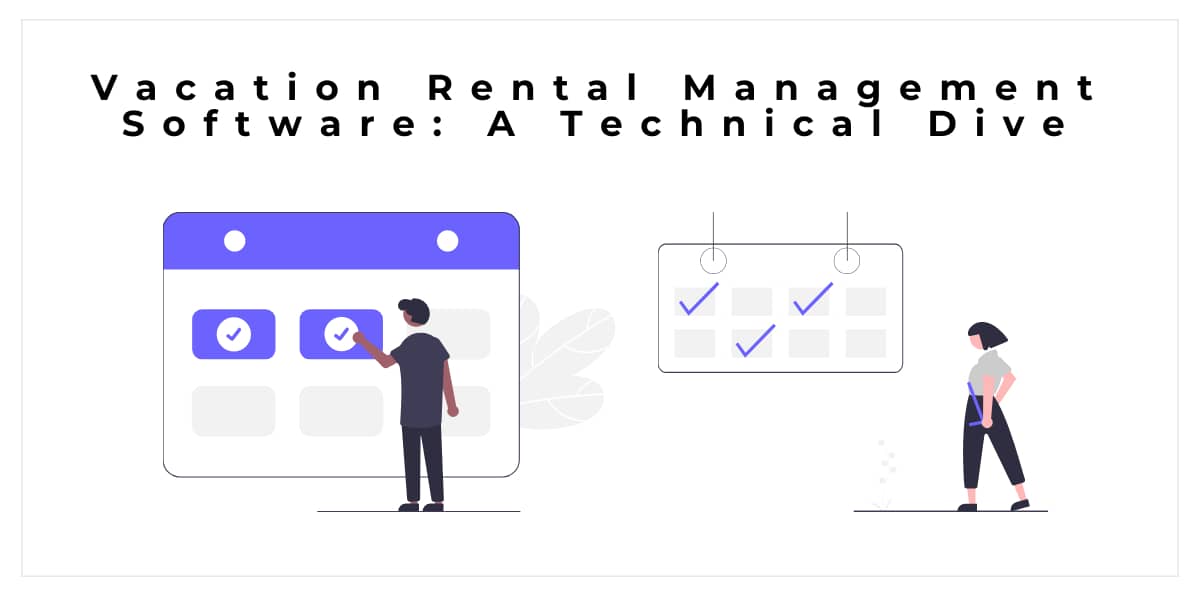Hello, dear coders and code enthusiasts! Today, we're diving deep into the fascinating world of vacation rental management software. Yes, we know that when you hear something about any tech tool, your mind races with curiosity about how these operate under the hood. So, let's quench that thirst for knowledge and delve into the technical aspects that make this software so indispensable in today's market.
System Architecture and Design
One of the first points of intrigue for any coder is the system's architecture. Short term rental software often adopts microservices-based architectures. The modular nature of microservices-based architectures offers distinct advantages when it comes to scalability and maintainability. In simpler terms, scalability refers to the system's ability to handle growth, whether it's increased user demand, data volume, or both. With a microservices approach, as the demand grows, individual components or services can be independently scaled, without the need to modify the entire system. This is particularly beneficial when integrating with various "channel managers", as each integration can be treated as a separate service or module, allowing for flexibility and ease of expansion.
Mantenibility, on the other hand, deals with the ease of updating, fixing, or improving the system. By breaking down specific functions into different services, updates or changes can be localized to the relevant service without risking disruptions to the entire system. For instance, if there's a need to update the way a specific channel manager integrates, only the service handling that particular integration needs to be adjusted. This modular approach not only simplifies the maintenance process but also reduces the potential for errors that could impact the broader system.
In essence, the decomposition of specific functions into separate services creates a more resilient and adaptable system. It allows for targeted updates, efficient scaling, and a more streamlined approach to integrating diverse components, such as multiple "channel managers". This results in a robust system that can readily adapt to changing requirements and conditions.
Integration with Channel Managers
The term "channel manager" might sound like music to a marketing guru's ears, but for us, coders, it represents a technical challenge. How do you ensure smooth synchronization of availability and rates between different platforms and the rental software? This is where well-designed APIs come into play, allowing for real-time and bi-directional integrations. These APIs need to be robust, fast, and above all, secure.
Security and Data Protection
Speaking of security, we can't overlook the importance of protecting guest and owner data. This involves implementing advanced security protocols, encrypting data at rest and in transit, and adhering to global standards and regulations. Plus, with the rise of online payments, ensuring the integrity and security of financial transactions is paramount.
User Interface and Experience
Even though we're technically inclined, we can't ignore the user interface. After all, a good UX can make or break software. Modern vacation rental solutions tend to adopt frontend frameworks like React or Vue.js to deliver swift, responsive, and adaptive interfaces. Behind that sleek design, there are hours of coding and testing to ensure everything runs smoothly.
Automation and Machine Learning
Automation is key to reducing manual labor and enhancing efficiency. Many vacation rental management softwares now incorporate machine learning algorithms, for instance, to optimize rental rates based on demand and seasonality. These algorithms demand a significant amount of data and processing power, leading us to consider cloud computing solutions and distributed databases.
Conclusion
Vacation rental management software is a thrilling blend of technical challenges and innovative solutions. Whether you're looking to develop your own solution or simply want to understand better how these systems operate, we hope this peek under the hood provided valuable insight. And remember, behind every user-friendly feature, there's a ton of code and a hard-working team of coders making it happen. Until next time, fellow coders!








